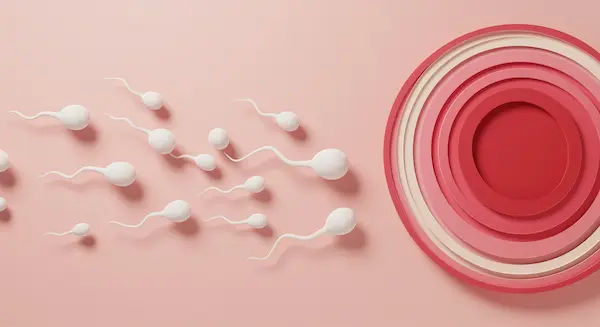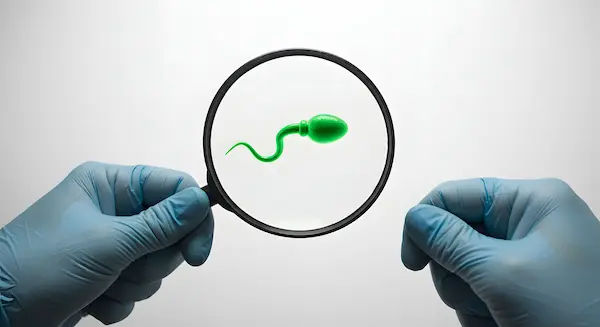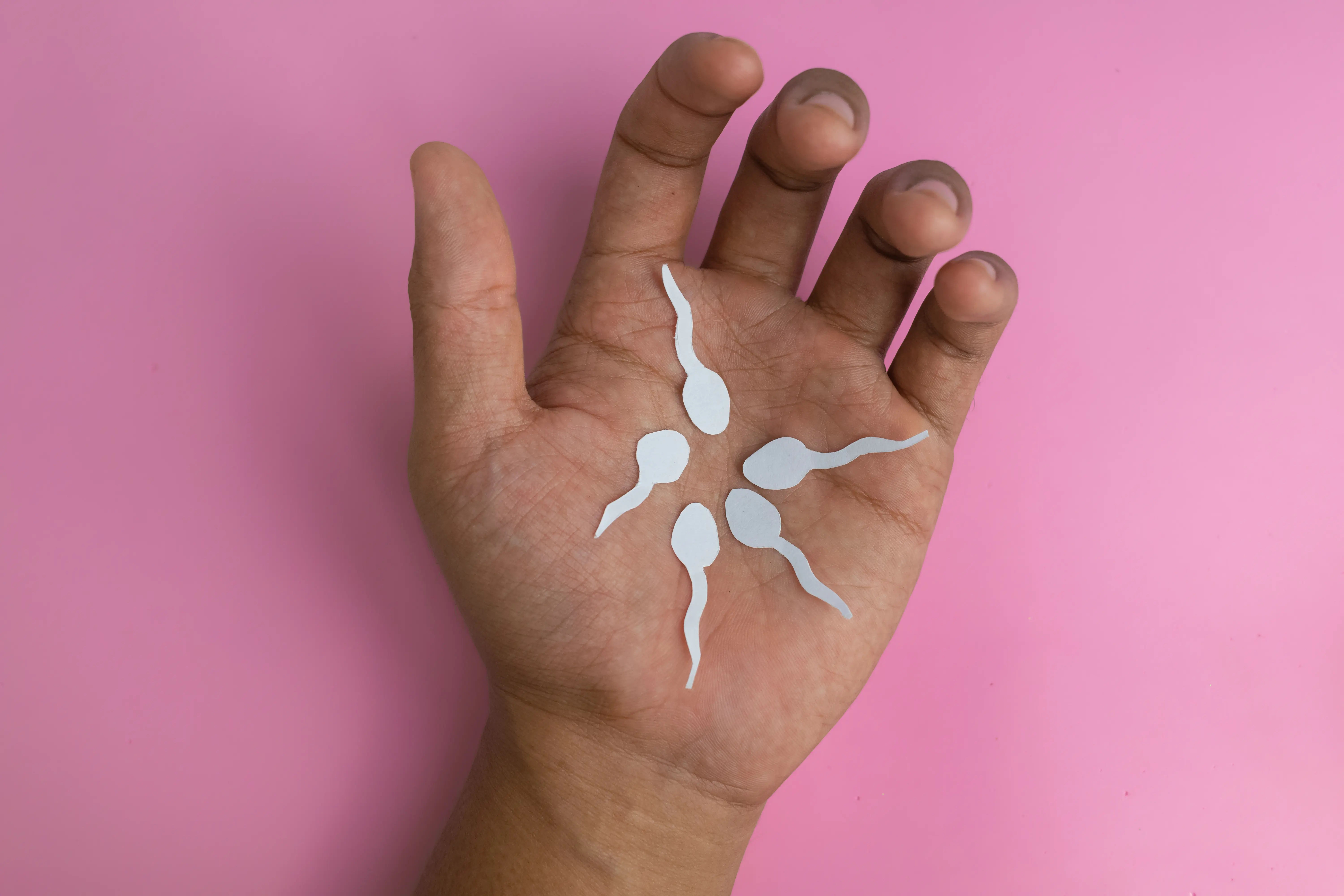Low Sperm Count Causes and Treatment
Learn about low sperm count, its common causes, and effective treatment options. Understand how lifestyle changes and medical interventions can improve fertility.

Written by Dr. M L Ezhilarasan
Reviewed by Dr. Shaik Abdul Kalam MD (Physician)
Last updated on 13th Jan, 2026

Introduction
Discovering you have a low sperm count can be an overwhelming and stressful experience for any man hoping to start a family. It brings up a whirlwind of questions about masculinity, health, and the future. However, it's crucial to understand that a diagnosis of low sperm concentration is not a final verdict on your fertility. In many cases, it's a treatable condition. This comprehensive guide will walk you through everything you need to know about low sperm count treatment. We'll explore the root causes, from lifestyle factors to underlying medical conditions, and detail the wide range of effective solutions available today. From simple dietary changes to advanced medical interventions, you'll learn about the path forward, empowering you with knowledge and hope for your journey to parenthood.
Understanding Low Sperm Count (Oligospermia)
A low sperm count, clinically known as oligospermia, is diagnosed when the semen released during an ejaculation contains fewer sperm than normal. It's a primary cause of infertility for many couples, but understanding the parameters is key.
What is a Normal Sperm Count?
According to the World Health Organization (WHO), a normal sperm concentration is at least 15 million sperm per millilitre of semen. A count below this threshold is considered low. It's further classified as:
• Mild oligospermia: 10 to 15 million sperm/mL
• Moderate oligospermia: 5 to 10 million sperm/mL
• Severe oligospermia: Less than 5 million sperm/mL
The Male Fertility Equation: More Than Just Count
While count is critical, it's not the only factor. A complete picture of male fertility also assesses:
• Sperm Motility: The percentage of sperm that are moving and how well they swim.
• Sperm Morphology: The percentage of sperm that have a normal, healthy shape.
• Volume: The total amount of semen produced.
A comprehensive diagnosis looks at all these parameters to guide effective low sperm count treatment.
Consult a Urologist for the best advice
The Root of the Problem: What Leads to Low Sperm Count?
Effective treatment hinges on identifying the cause. The reasons behind a low sperm count are diverse and can be medical, environmental, or related to lifestyle.
1. Medical Causes of Low Sperm Production
Medical causes of low sperm production include:
Varicocele: The Most Common Reversible Cause
A varicocele is a swelling of the veins that drain the testicle, similar to a varicose vein in your leg. It’s present in about 15% of all men and in about 40% of men evaluated for infertility. It can reduce sperm quality by increasing testicular temperature and disrupting blood flow.
Infections and Their Impact
Certain infections can interfere with sperm production or cause scarring that blocks the passage of sperm. These include inflammation of the epididymis (epididymitis) or testicles (orchitis), and some sexually transmitted infections. Even after the infection is cleared, permanent damage may remain.
Hormonal Imbalances and Endocrine Issues
The hypothalamus, pituitary gland, and testicles produce hormones essential for sperm production. Imbalances in this system, such as low testosterone or elevated prolactin, can impair sperm production.
Genetic Factors and Chromosomal Defects
Inherited disorders like Klinefelter's syndrome, Y-chromosome microdeletions, and cystic fibrosis can cause the absence or abnormal development of the reproductive organs.
2. Environmental and Lifestyle Factors
Diet, habits, and exposures may contribute to low sperm count.
The Effect of Diet and Nutrition on Sperm Health
A diet lacking in essential nutrients like zinc, folate, and antioxidants (Vitamins C and E) can hamper sperm production. Obesity is also directly linked to reduced sperm count and quality.
How Stress and Mental Health Affect Sperm Count
Prolonged emotional stress, especially fertility-related stress, can interfere with the hormones needed to produce sperm. It can also lead to unhealthy coping mechanisms like heavy drinking, which further reduces count.
Toxins and Chemical Exposures to Avoid
Regular exposure to industrial chemicals, heavy metals, radiation, or X-rays can reduce sperm production. Even prolonged exposure to heat (e.g., hot tubs, saunas, or laptops on the lap) can temporarily affect count.
Getting a Diagnosis: The First Step to Treatment
You cannot treat what you don't diagnose. A proper medical evaluation is non-negotiable.
The Semen Analysis Test
This is the cornerstone test for male fertility. It involves providing a semen sample, typically through masturbation into a sterile cup, which is then analysed in a lab for count, motility, and morphology.
Additional Fertility Testing for Men
If the semen analysis is abnormal, further tests may include:
• Scrotal Ultrasound: To check for varicoceles or other testicular problems.
• Hormone Testing: A blood test to check testosterone, FSH, LH, and prolactin levels.
• Post-Ejaculation Urinalysis: To check for retrograde ejaculation (sperm entering the bladder).
• Genetic Tests: To identify any chromosomal abnormalities.
Get Your Health Assessed
Effective Low Sperm Count Treatment Options
The right treatment depends entirely on the cause. Here are the primary avenues explored in male infertility treatment.
Lifestyle and Natural Remedies to Boost Sperm Count
For mild cases or as a supportive measure, these changes can have a profound impact:
• Diet: Increase intake of fruits, vegetables, whole grains, and lean proteins rich in antioxidants.
• Exercise Moderately: Regular, but not excessive, exercise can boost testosterone levels.
• Manage Stress: Techniques like yoga, meditation, and therapy can help.
• Avoid Toxins: Quit smoking, limit alcohol, and avoid anabolic steroids and recreational drugs.
Medical Treatments for Underlying Conditions
Medical treatments for underlying conditions can help address causes of low sperm production and boost reproductive health.
• Treating Infections: Antibiotics can cure a reproductive tract infection but may not always reverse scarring.
• Hormone Treatments: Medications or hormone replacement therapy can correct hormonal imbalances.
• Erectile Dysfunction Treatments: Medications can assist with erection or ejaculation problems.
Surgical Interventions for Male Infertility
Surgical interventions for male infertility can correct certain reproductive problems and improve chances of conception.
• Varicocelectomy: Surgically repairing a varicocele can improve sperm count and motility. Studies show pregnancy rates increase after this procedure.
• Vasectomy Reversal: Reversing a prior vasectomy to restore the flow of sperm.
• Sperm Retrieval Techniques: Procedures like TESA or TESE retrieve sperm directly from the testicles for use in ART.
Assisted Reproductive Technology (ART) Solutions
When other treatments aren't viable or successful, ART offers powerful hope:
• Intrauterine Insemination (IUI): Healthy sperm are collected, washed, and concentrated, then placed directly into the uterus around the time of ovulation.
• In Vitro Fertilisation (IVF): Eggs are surgically retrieved from the female partner and fertilized with sperm in a lab dish.
• Intracytoplasmic Sperm Injection (ICSI): A single healthy sperm is injected directly into an egg, revolutionizing treatment for severe male factor infertility. It is often used in conjunction with IVF.
When to Seek Professional Help
If you and your partner have been trying to conceive for over a year (or six months if the female partner is over 35) without success, it's time to consult a doctor. Earlier evaluation is warranted if you have known risk factors like a history of testicular surgery, trauma, or chemotherapy. If you're concerned about your fertility, consult a urologist or fertility specialist online with Apollo24|7 for a confidential and professional evaluation.
Conclusion: Taking Control of Your Fertility Journey
A diagnosis of low sperm count can feel like a daunting obstacle, but it's important to reframe it as a solvable problem. The journey to effective low sperm count treatment begins with understanding the multifaceted causes, from varicoceles and hormonal issues to lifestyle choices. Modern medicine offers a robust spectrum of solutions, from non-invasive lifestyle adjustments and medications to advanced surgical and ART procedures like IVF with ICSI. The most critical step is to move from uncertainty to action. By seeking a professional diagnosis and engaging openly with a healthcare provider, you can develop a personalised plan that addresses your specific situation. Remember, you are not alone in this. With the right approach and support, countless men have successfully navigated this path to achieve their dream of fatherhood.
Consult a Urologist for the best advice
Consult a Urologist for the best advice

Dr. Rohit Bhattar
Uro Oncologist
14 Years • MBBS, MS, MCh (Urology), Fellowship in Uro-oncology and Robotic Urology (United Kingdom)
Ahmedabad
Apollo Hospitals Gandhinagar, Ahmedabad
(100+ Patients)

Dr. Pradeep Champawat
Urologist
10 Years • MBBS, MS, DNB Urology
Delhi
Apollo Hospitals Indraprastha, Delhi
(175+ Patients)

Dr. Daxay Lakhani
Urologist
8 Years • MBBS, DNB(Surgery), DrNB(Urology)
Hyderabad
Apollo Hospitals Jubilee Hills, Hyderabad
(150+ Patients)
Dr. J Chaithanya
Urologist
6 Years • MBBS MS GENERAL SURGERY MCH UROLOGY
Bengaluru
Apollo Medical Center, Marathahalli, Bengaluru
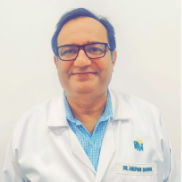
Dr Anupam Sharma
Urologist
18 Years • MBBS, MS(Gen Surgery), DNB (Urology)
Delhi
Apollo Hospitals Indraprastha, Delhi
(25+ Patients)
Consult a Urologist for the best advice

Dr. Rohit Bhattar
Uro Oncologist
14 Years • MBBS, MS, MCh (Urology), Fellowship in Uro-oncology and Robotic Urology (United Kingdom)
Ahmedabad
Apollo Hospitals Gandhinagar, Ahmedabad
(100+ Patients)

Dr. Pradeep Champawat
Urologist
10 Years • MBBS, MS, DNB Urology
Delhi
Apollo Hospitals Indraprastha, Delhi
(175+ Patients)

Dr. Daxay Lakhani
Urologist
8 Years • MBBS, DNB(Surgery), DrNB(Urology)
Hyderabad
Apollo Hospitals Jubilee Hills, Hyderabad
(150+ Patients)
Dr. J Chaithanya
Urologist
6 Years • MBBS MS GENERAL SURGERY MCH UROLOGY
Bengaluru
Apollo Medical Center, Marathahalli, Bengaluru

Dr Anupam Sharma
Urologist
18 Years • MBBS, MS(Gen Surgery), DNB (Urology)
Delhi
Apollo Hospitals Indraprastha, Delhi
(25+ Patients)
More articles from Low sperm count
Frequently Asked Questions
1. Can low sperm count be cured permanently?
It depends on the cause. Some causes, like a varicocele or hormonal imbalance, can be effectively treated, leading to a permanent improvement. For other conditions, ongoing management or the use of Assisted Reproductive Technology may be necessary to achieve pregnancy.
2. What is the best vitamin for increasing sperm count?
While no single vitamin is a magic bullet, several are crucial. Antioxidants like Vitamin C, Vitamin E, and Coenzyme Q10 help protect sperm from damage. Zinc and Folate are directly involved in sperm production and development. It's best to get these from a balanced diet or a supplement formulated for male fertility.
How long does it take to increase sperm count with lifestyle changes?
Sperm production is a cycle that takes approximately 70-90 days. Therefore, you should allow at least 3 months of consistent healthy lifestyle changes before expecting to see significant improvements in a follow-up semen analysis test.
Is it possible to get someone pregnant with a low sperm count?
Yes, it is possible, but the chances are lower. Even with a low count, if sperm motility and morphology are good, natural conception can occur. Treatments like IUI and IVF/ICSI are specifically designed to overcome this challenge by concentrating sperm or directly injecting a single sperm into an egg.
How much does low sperm count treatment cost?
The cost varies dramatically based on the treatment. Lifestyle changes cost little to nothing. Medications may be affordable, while surgery for a varicocele can cost a few thousand dollars. ART procedures like IVF and ICSI are the most expensive, often costing several thousand dollars per cycle.

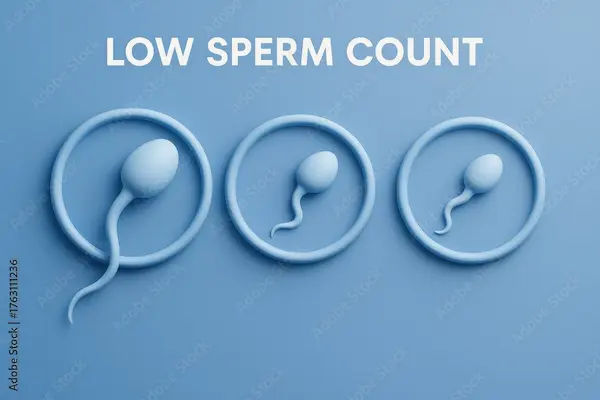
.webp)
